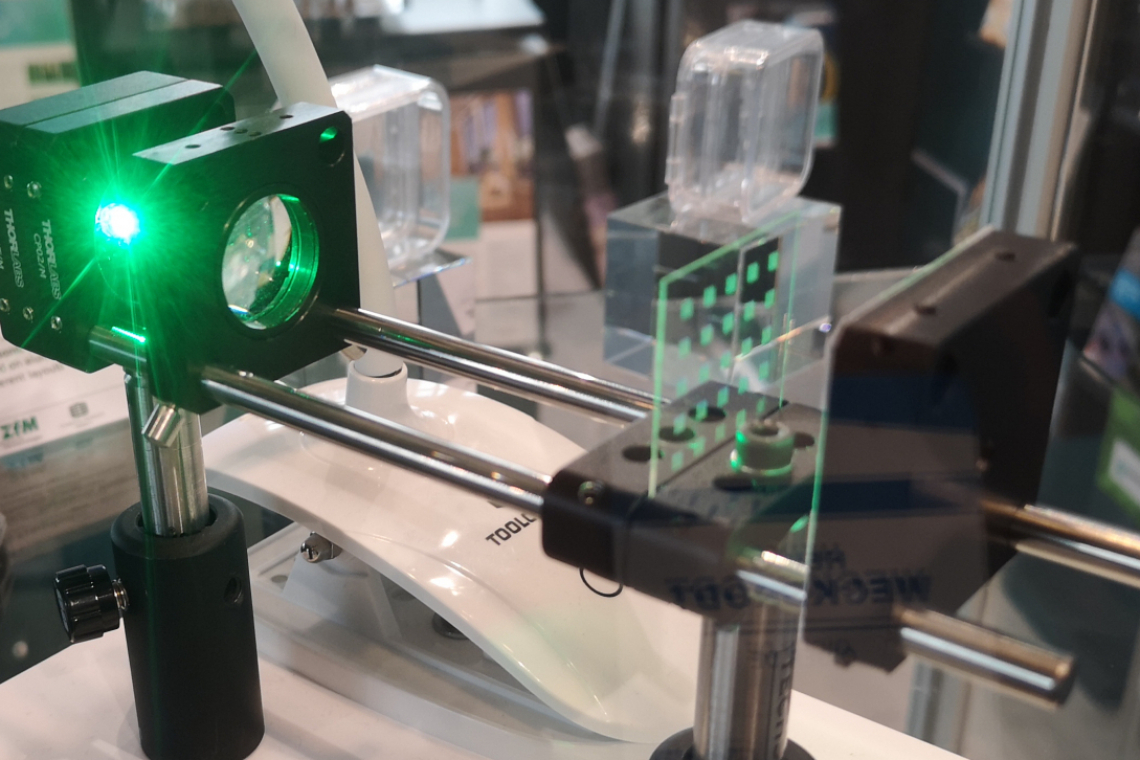High-precision sensors, manufacturing technologies for microsystems, as well as sustainability and new ways of recruiting skilled workers were among the focal points of the 'Microsystems Technology Congress 2023' held in Dresden from October 23 to 25, 2023.
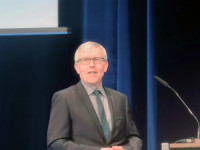 Dr. Stefan Mengel, BMBFTherange of topics was broad: around 500 experts from science and industry debated nanostructuring, the reputation of engineers among Generation Z, even the sense of smell of eels - and upcoming funding programs for the electronics industry in the heart of Saxony's semiconductor cluster.
Dr. Stefan Mengel, BMBFTherange of topics was broad: around 500 experts from science and industry debated nanostructuring, the reputation of engineers among Generation Z, even the sense of smell of eels - and upcoming funding programs for the electronics industry in the heart of Saxony's semiconductor cluster.
Dr. Stefan Mengel from the Federal Ministry of Education and Research gave an initial outlook on the direction in which funding policy in Berlin will soon be moving. For example, as part of the European Chip Act, the federal government will also fund pilot lines for innovative microelectronics and microsystems technology as well as new chip design centers of excellence to a greater extent than before. "The first calls for applications will start at the end of the year," announced the head of the electronics department. Taking part will be worthwhile: "We are talking about several hundred million euros."
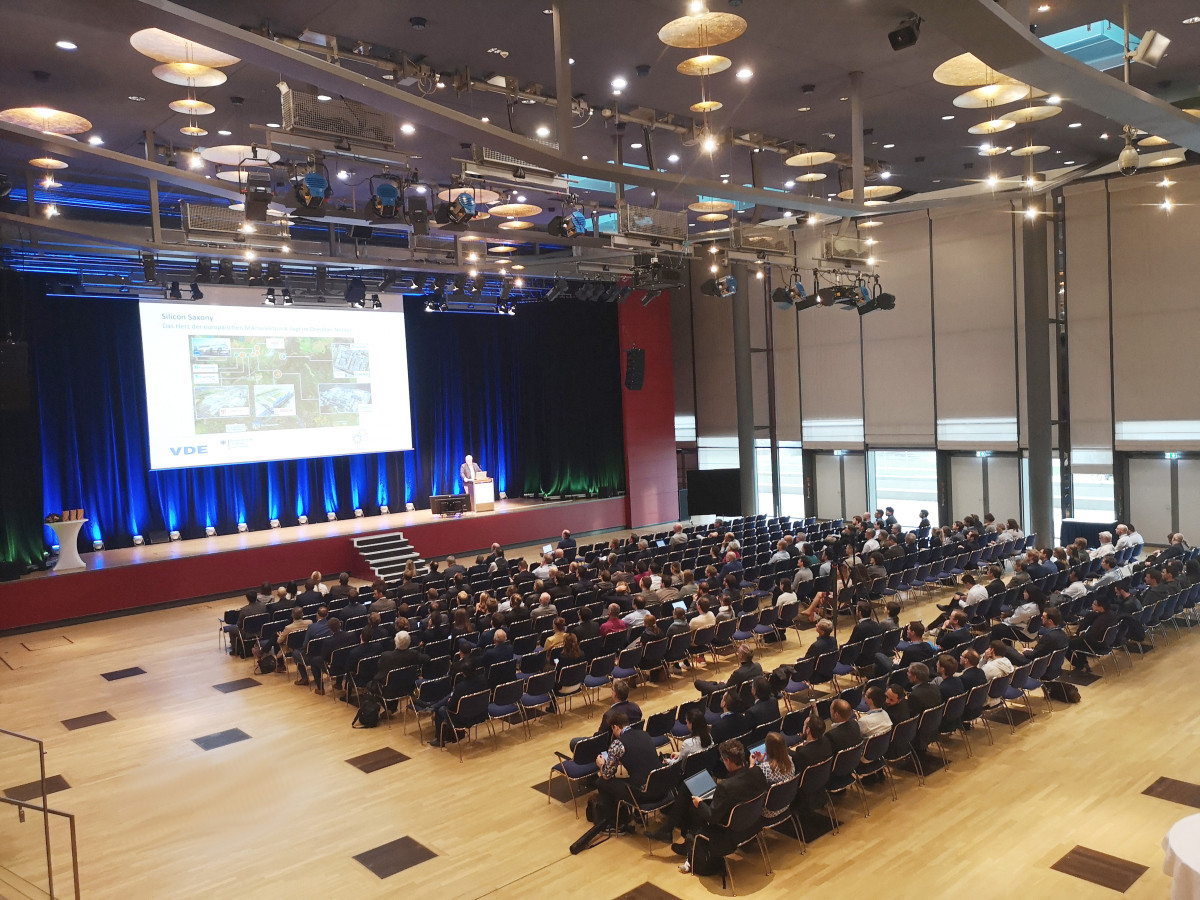 VDE and the Ministry of Research hosted the Microsystems Technology Congress at the International Congress Center Dresden
VDE and the Ministry of Research hosted the Microsystems Technology Congress at the International Congress Center Dresden
New framework program for microelectronics research
The federal government is also continuing to support efforts to build up and expand Germany's own capacities for processor design on an open source basis. The focus here is likely to be on the existing Zuse projects and, in particular, RISC-V processor architectures.
The federal government is also working on a new framework program for microelectronics research, as the old one expires in 2024. It is becoming apparent that the Berlin ministries want to focus more on annual focus topics such as the use of AI for selected applications, quantum technologies or neuronal designs.
Sensors, microsystems technology and microelectronics are likely to play an even greater role in the coming years, both commercially and in terms of research, as was clearly demonstrated during the MST Congress. The density of sensors and microsystems in industry, in the transport sector and in the everyday lives of almost every end user will increase significantly in the coming years, predicted Bosch SensorTech boss Dr. Stefan Finkbeiner.
Among other things, the Bosch laboratories are working on greatly improved magnetic field, pressure and gas sensors, which should soon achieve similar sensitivities to natural senses - only more reliable. As examples, Finkbeiner cited the magnetic field navigation of bees or the ability of eels to detect just a few molecules of a chemical substance: in theory, they would be able to smell a few drops of perfume in an entire lake. Bosch engineers are trying to achieve similar precision with new capacitive membrane pressure sensors that are so accurate that they can measure the difference in air pressure between two steps. Finkbeiner sees potential applications such as calorie counters in sportswear or three-dimensional indoor positioning and navigation: for example, the new pressure sensors could provide orientation in shopping centers where GPS does not work.
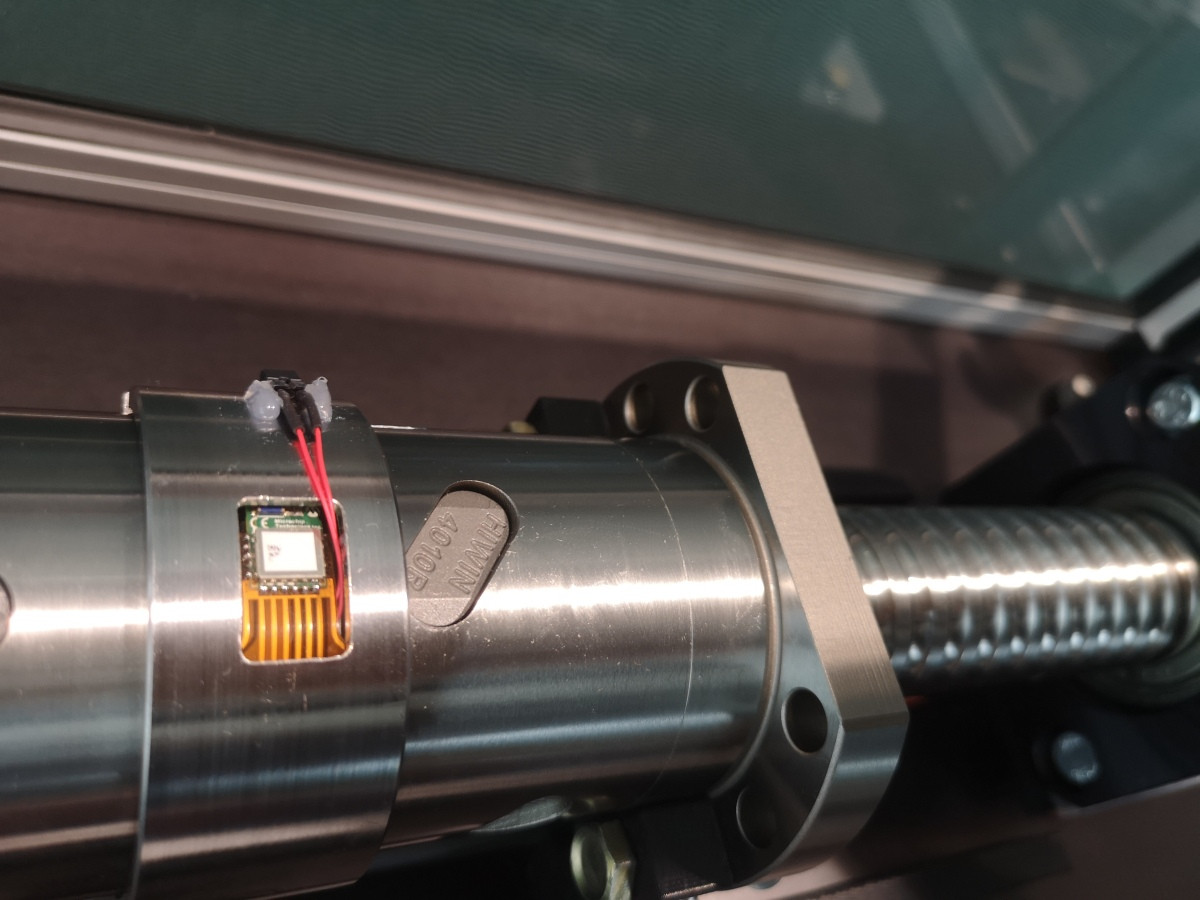 Non-contact force/temperature sensors with Bluetooth transmitters can be embedded in hard-to-reach places such as worm gears in order to continuously measure actual wear and tear and - combined with actuators - also compensate for it up to a certain point. This is the result of a joint development by the Fraunhofer Institutes IPMS, Enas, IZM and IIS
Non-contact force/temperature sensors with Bluetooth transmitters can be embedded in hard-to-reach places such as worm gears in order to continuously measure actual wear and tear and - combined with actuators - also compensate for it up to a certain point. This is the result of a joint development by the Fraunhofer Institutes IPMS, Enas, IZM and IIS
Automatic forest fire warning system and bicycle navigation system in glasses
Bosch Sensortech engineers are also working together with a Berlin-based company on gas sensors that are to be attached to trees in the future in order to alert the fire department in good time in the event of forest fires - coupled with an AI in the Edge Cloud. Another development project at the electronics group is aimed at augmented reality displays in glasses, which were previously reserved for professional users. These micro-screens are intended, for example, to show cyclists navigation aids in their glasses while they are riding.
Bosch Sensortech also recently acquired the Dresden-based Fraunhofer spin-off "Arioso", which was the first in the world to succeed in integrating electrostatic loudspeakers into silicon-based 'microelectromechanical systems' (mems). The company now wants to bring these micro loudspeakers to mass production and anticipates considerable market potential - for smartphone earphones, hearing aids, voice output and many other applications.
The chances of market success for these new microsystems are quite good: Bosch is primarily known in Germany as an automotive supplier. However, mems and sensors from the Group subsidiary Sensortech can also be found in countless smartphones, home appliances and other consumer products around the world. In this respect, Bosch Sensortech is a very special champion, says congress co-organizer Prof. Hubert Lakner from the Fraunhofer Photonics Institute IPMS: "Germany is right at the forefront in this segment."
And this applies to the advances in microsystems technology in general, as reflected at the conference: Be it precision lasers for eye operations, laboratory chips that detect suspicious cancer cells in a patient's blood within seconds, quantum technologies for planetary exploration or the sensors and actuators of highly automated greenhouses for a more ecological food supply in large cities: The latest advances in microelectronics and microsystems technology are currently driving innovation in medicine, transportation, industry and urban agriculture - and paving the way towards a sustainable circular economy.
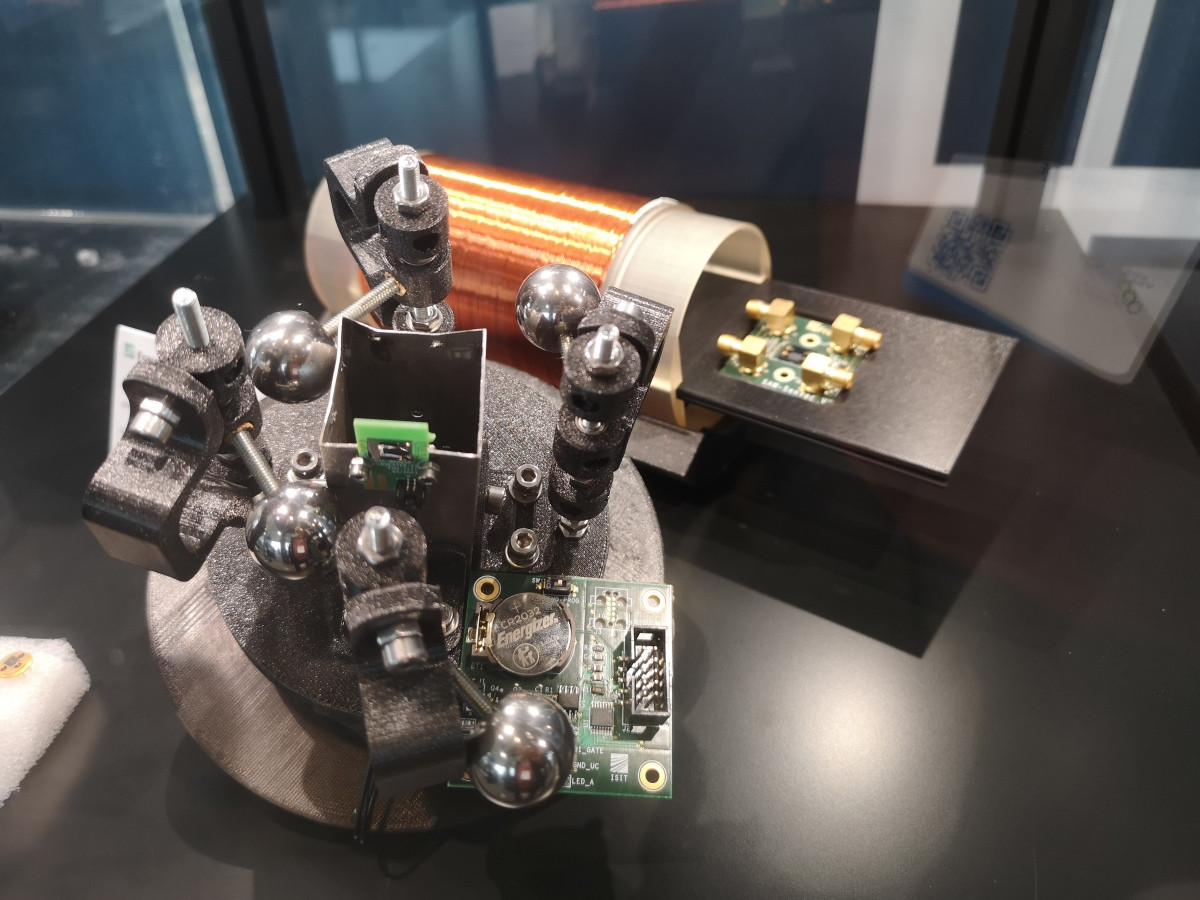 Surface wave sensor in a sample environment at Fraunhofer-ISIT
Surface wave sensor in a sample environment at Fraunhofer-ISIT
In Gen Z, the engineer is the recipient of orders
At the same time, however, the ideal of the creative inventor is losing its appeal, with fewer and fewer young people wanting to become electrical engineers, for example. The German Association for Electrical, Electronic & Information Technologies (VDE) presented a study on the reputation of electrical engineers among young people. Together with partners, the association surveyed over 1,000 students and pupils to find out where the problems lie. It emerged that electrical engineering hardly comes up when looking for a course of study, "because the image of a blue-collar worker or someone who receives instructions prevails".
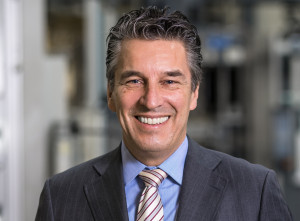 VDE President Alf Henryk WulfTherefore, a whole section of the program was dedicated to recruiting young talent. "In order to inspire young people who are committed to environmental and climate protection, we should talk much more about electrical engineering in the context of sustainability," explained VDE President Alf Henryk Wulf. "Solar panels or heating systems that are smartly controlled, optimized battery charging cycles and autonomous cars are only possible with microelectronics - and we need clever minds for that."
VDE President Alf Henryk WulfTherefore, a whole section of the program was dedicated to recruiting young talent. "In order to inspire young people who are committed to environmental and climate protection, we should talk much more about electrical engineering in the context of sustainability," explained VDE President Alf Henryk Wulf. "Solar panels or heating systems that are smartly controlled, optimized battery charging cycles and autonomous cars are only possible with microelectronics - and we need clever minds for that."
According to IPMS CEO Lakner, the global advance of digitalization is also bringing other topics to the fore alongside the pure availability of semiconductors: technological sovereignty and trustworthiness in microelectronics, i.e. 'trusted electronics', sustainability aspects such as 'green ICT' and 'next generation computing'.
With this in mind, the congress organizers presented three 'Green ICT Awards' for student theses aimed at sustainable electronics solutions. First place went to Kareem Mansour from the Albert-Ludwigs-Universität Freiburg with his master's thesis on highly efficient bidirectional DC-DC converters, followed by Alexander Maximilian Busch from the Hamburg University of Applied Sciences for his bachelor's thesis on energy consumption models in wireless communication and Tuğana Ceren Aslan from the TU Berlin, whose master's thesis was dedicated to climate-neutral data centers.
Sources
Presentations at the Microsystems Technology Congress 2023, VDE, Fraunhofer-IPMS, oiger.de

